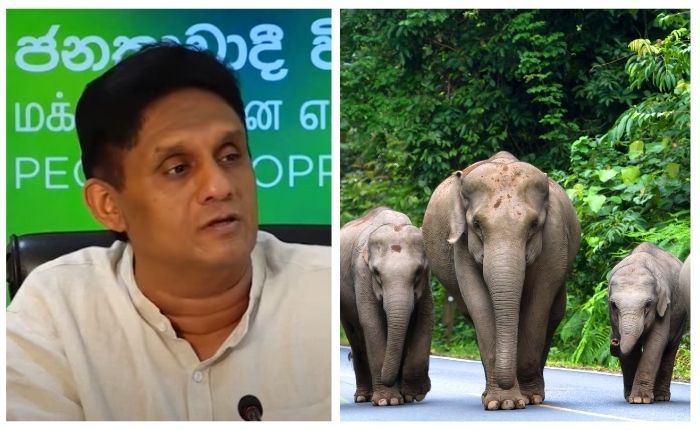
Opposition Leader Sajith Premadasa has proposed a 10-point national action plan to address the growing human-elephant conflict (HEC) in Sri Lanka, calling on the government to halt the distribution of firearms around the country as a solution.
He said the ongoing conflict is creating a “national tragedy,” with both human and elephant lives being lost, and urged the government to implement scientifically backed and coordinated conservation measures.
Among his key proposals:
1. A scientifically conducted and accurate national elephant census.
2. Immediate activation of the 2020 national action plan aimed at reducing human-elephant conflict.
3. Establishment of a Presidential Task Force under the President’s leadership to coordinate relevant ministries and agencies.
4. Creation of a dedicated force to protect and preserve elephants, similar to Kenya’s elite conservation units.
5. Centralised, data-driven decision-making to guide mitigation efforts.
6. Introduction of a proper compensation and insurance scheme for crop, property, and life loss caused by elephant encounters.
7. Revival of national-level projects like Project Elephant, Project Leopard, and Project Whale.
8. Leveraging green and wildlife conservation funding for program implementation.
9. Addressing the shortage of trained wildlife personnel and enhancing their capacity through structured national training programmes.
10. Establishing an international-level university focused on environmental and wildlife conservation, including research-based eco-tourism initiatives.
Premadasa cited recent data showing 5,879 elephants in Sri Lanka, with 70% living outside protected areas. He said 19 out of 25 districts and 131 Divisional Secretariats currently face human-elephant conflict, underscoring the need for a pragmatic and effective national plan.
He also proposed adopting technologies used in other countries to prevent elephant-train collisions, and suggested launching mobile veterinary hospitals for injured elephants, as seen in India under the Ambani Foundation.
Premadasa emphasised that the solution is not to arm villagers but to protect both communities and wildlife through structured, inclusive, and sustainable planning. (Newswire)
